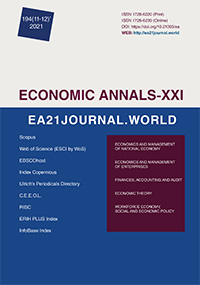Shifting cultivation management to increase economic efficiency in potato farms
Shifting cultivation management to increase economic efficiency in potato farms
Author(s): Umi Yuminarti, Riyanti Isaskar, Agatha Wahyu Widati, - FahriyahSubject(s): Economy, Business Economy / Management, Micro-Economics, Agriculture
Published by: Institute of Society Transformation
Keywords: Shifting Cultivation; Variable Rate Technology; Conventional Farming; Economic Efficiency; Potato Farming;
Summary/Abstract: Farming shifting is one of the cultivation strategies to find the ideal environment. Shifting agriculture is caused by limited knowledge of farmers on environmental conditions for growing plants. This study aims to describe the input variables and shifting cultivation management on the efficiency of potato farming. The research method used is descriptive statistics. The study involved 51 potato farmers in Minyeimemut and Arion villages of Hingk sub-district, Manokwari District, West Papua, Indonesia. Potato commodities cultivated by Arfak farmers are still using a shifting cultivation system. Analysis of the data by quantitative descriptive method with the help of Frontier 4.1 software and the Maximum Likelihood Estimation (MLE) approach to reduce the stochastic frontier cost function. The results showed that the average potato production was 296.08 Kg/Season. The average area of land cultivated by farmers is 0.15 Ha, the average use of seeds is 44.41 kg, and the average workforce is 33.08 Working Days (HOK). The cultivation activities of potato farmers show 4.33 years of shifting. Economic efficiency shows potato farming of 0.08548 which means it has a fairly economical category.
Journal: Економічний часопис - ХХІ
- Issue Year: 194/2021
- Issue No: 11-12
- Page Range: 73-80
- Page Count: 8
- Language: English

